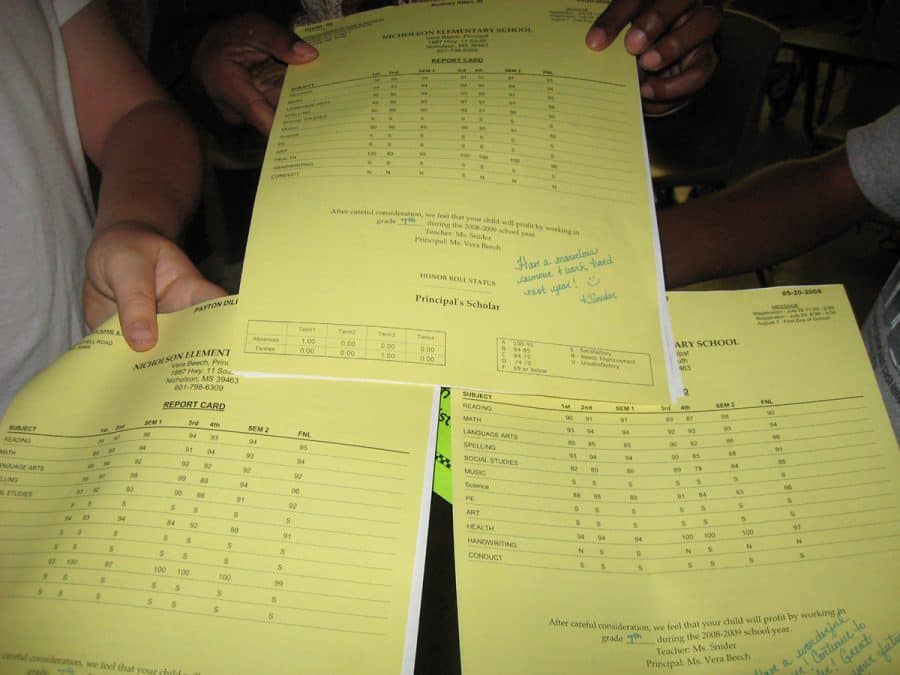For students, grades can mean everything. Whether it be for applying for jobs, or gaining admissions to graduate, medical or law school, grades bear a heavy weight, and for students at The University of Alabama, managing their GPA can be a more complex experience than at other schools.
The University of Alabama employs a plus and minus system in grading, which makes the GPA scale different from any other college in the state of Alabama. According to the University of Alabama’s website, “grade point averages are computed on the following grades: ‘A,’ ‘B,’ ‘C,’ ‘D,’ ‘F,’ or ‘I’ and any pluses or minuses that appear on the record.”
The way that the policy reads, pluses and minuses are optional but they also change students’ GPAs.
“Instructors are not required to use any particular grading scale,” said Denny Savage, senior associate university registrar.
Since the University does not have an official policy on pluses and minuses, students face classes where their teacher’s grading is inconsistent. It is entirely up to each individual teacher whether they employ the plus/minus system and how they choose to employ it.
“I had one teacher who refused to honor the plus/minus system,” said Patrick Harrison, a senior majoring in civil engineering. “He simply gave a straight ‘A’ without a plus or minus.”
While the correlating GPA to an ‘A’ is a 4.0, the difference between an ‘A+’ and an ‘A-,’ according to the University’s website, is a 4.33 and a 3.67 GPA.
“I don’t think all professors understand the difference that an ‘A+’ or an ‘A-’ makes in students’ GPAs,” said Cathy Elliott, an academic advisor for the College of Arts and Sciences. “I have had many students explain to their teachers that an ‘A+’ can help them raise their GPA from classes that may have brought their GPA down.”
Teachers do not receive any recommendations from the University on how they should grade their classes or on the difference in GPAs. Some teachers do not realize that a plus or minus is an option when assigning grades.
“I am fairly new here, but through my orientation to the University, the department or in any of the materials they gave me when I was hired nothing about the grading scale was mentioned,” said Amber Buck, an associate professor in the English department. “I assumed that pluses and minuses were something that were given out in high school, not in college. I was completely unaware that they affected students’ GPAs so drastically.”
For students, the fact that the professors are unaware of how each grade sways their overall GPA they often find themselves feeling stuck when it comes to achieving a competitive GPA.
“I think we are at a disadvantage,” Harrison said. “With the teachers, I do not think it should be optional, it should either be a part of the system or not.”
Anna Michaels, a junior majoring in political science and English had a professor who honored the minus system but not the plus system.
“In my English 310 class, I ended the semester with a 98, which on most scales is an ‘A+’ but because the professor did not honor the plus system my grade was put in as an ‘A,’” Michaels said. “It was frustrating because I could have really used that pick me up in my GPA to counteract an ‘A-’ I made in another class, but unfortunately I did not get it.”
Other students face the frustration that comes when they make ‘A’s in their classes but because of the difference in GPA they have to deal with the fact that all ‘A’s are not created equally.
“My second semester of my freshman year I took a chemistry class where the teachers honored the plus/minus system,” said Matt Delahay, a junior majoring in chemistry. “I made a 92 in my chemistry class and as a result received an ‘A-’ for the semester. Because of this, I ended up with a 3.9 instead of a 4.0 for the semester. It is very frustrating because I made an ‘A’ but an ‘A-’ is not really an ‘A.'”
Some students have managed to navigate the plus/minus system effectively, being able to maintain a 4.0. However, even those students find themselves nervous about how the grading system will affect them long term as they seek job offers and admissions to post-undergraduate education.
Mollee Cohee, a junior majoring in biology, who is preparing to apply for medical school, finds the plus/minus system putting her at a disadvantage.
“If I make an ‘A+’ it does not matter, but if I make an ‘A-’ it hurts me,” she said.
Moving forward, students at the University ask to see more consistency in the grading system. They ask for a system where their GPAs reflect their performance, instead of a grading scale that changes as often as they change classes.









